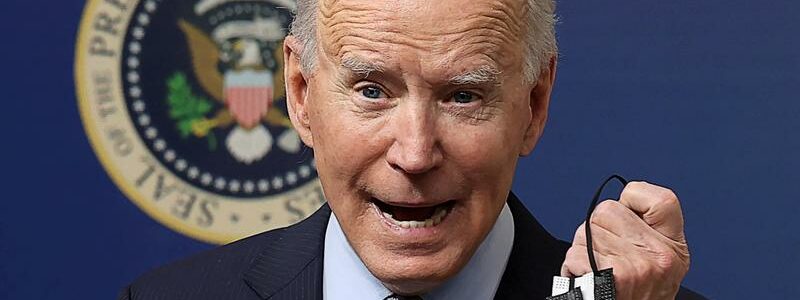
Biden's aid bill wildly popular with Americans — except Republicans in Congress
WASHINGTON (Reuters) – The White House is losing hope that congressional Republicans will back U.S. President Joe Biden’s $1.9 trillion coronavirus aid bill despite a campaign-style push that has won support from business leaders, local government officials, unions and voters.
The administration has heavily promoted the “American Rescue Plan” as crucial to getting millions of unemployed back to work and children back into schools. The House of Representatives will vote on it as soon as Friday.
But Republican leaders in Congress are seeking to unify their caucus in opposition to the plan, and even moderate Republicans who signaled initial willingness to work with Biden are balking, largely citing the program’s cost.
Utah Senator Mitt Romney, who voted to impeach Biden predecessor Donald Trump, this week labeled the relief bill a wasteful “clunker.” Pennsylvania’s Pat Toomey called it “completely partisan and divorced from economic reality.”
While the relief package can pass without Republican support because of narrow Democratic control of the Senate, Biden promised a return to bipartisanship when he entered office in January. His failure to get Republicans on board here suggests four years of bitter battles in Washington instead.
The president has “used every opportunity he has to make the case publicly” for the relief bill, White House press secretary Jen Psaki told reporters Thursday.
She cited polls that show 70% of people, including a majority of Republicans, are in favor of the measure. “He is hopeful that Republicans, many in Congress, will follow what their constituents want,” she said.
Matt Bennett, the co-founder of Third Way, a Washington think tank that supports “center left” policies, said Americans need to rethink the definition of bipartisanship.
“Joe Biden doesn’t think about bipartisanship based on a vote count in Congress. He thinks about it based on how people in the country feel,” Bennett said.
A CAMPAIGN TO SELL AID
The new aid, which follows two relief packages totaling $2.9 trillion passed by Congress last year, provides additional spending for vaccines and medical supplies.
But most of the money addresses the economy with $1,400 relief checks to individuals, more generous federal unemployment benefits, aid to small businesses and $350 billion for state and local governments.
The White House’s carefully orchestrated promotion, modeled on Biden’s election campaign, has deployed top lieutenants Vice President Kamala Harris, Treasury Secretary Janet Yellen and economic adviser Brian Deese. Campaign aides helped target messages to local markets, minority groups and industries like restaurants.
Biden last week toured a factory of vaccine maker Pfizer in Michigan and spoke at a town hall in Wisconsin on the aid plan, two states he narrowly won in November.
The White House has pushed the bill on Spanish language media outlets like Telemundo and Univision, met with over 300 American Indian tribal leaders and held a special virtual briefing for 20 African-American news outlets.
REPUBLICAN DONORS, MAYORS ON BOARD
This campaign has gained traction, winning over many people, even some big Republican donors, state officials and voters.
Nearly seven in 10 Americans in a Quinnipiac University poll this month said they support Biden’s plan. And nearly eight in 10 people including a majority of Republicans like the $1,400 relief checks for individuals, the poll found.
More than 100 CEOs in a letter Wednesday called on Congress to “act swiftly and on a bipartisan basis to authorize a stimulus and relief package along the lines of the Biden-Harris administration’s proposed American Rescue Plan.”
Their ranks included Stephen A. Schwarzman, the CEO of asset management firm Blackstone and a major donor to Trump and congressional Republicans in 2020.
Over 30 Republican mayors have signed on to a letter supporting the bill as well.
Meanwhile, Republican leaders in Congress have focused on rallying their caucus against the package as a foundation for unity after Trump’s incitement of a violent attack on Congress in January exposed gaping divisions.
Republicans in late January offered an alternative $600 billion COVID-19 relief package that was immediately rejected by the White House as insufficient.
“Add ‘bipartisanship’ as another in a long list of Biden’s broken promises,” Republican National Convention rapid response director Tommy Pigott said in response.
While the White House faces more fights in the months ahead, veteran Democratic strategists believe the situation is a long-term win for the party.
In a memo to senior White House staff in February seen by Reuters, Mike Donilon, a veteran Biden political adviser, said Republican obstructionism was damaging the party’s standing.
“The GOP is putting itself at odds with a rescue package supported overwhelmingly by the American people” he wrote.
Source: Read Full Article